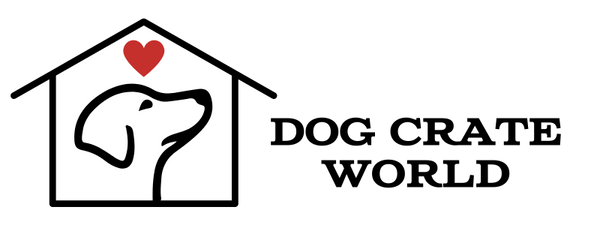We have all experienced the warm greeting of a wet, slobbery kiss from our dog. Those dog kisses are their way of showing love. But should we really be letting them lick us? Let's explore the reasons behind dog kisses, what’s in their slobber, and if you need to take any precautions.
Why Do Dogs Lick People?
Instinct and Pack Behaviour
Dogs are hardwired for social interaction. In the wild, their ancestor wolf pups lick their mother’s face to encourage her to regurgitate food. But more than just for food, licking is a way wolves bond with each other and maintain social order.
In your home, your dog sees you as part of their pack, and licking is their way of bonding and showing affection. It’s their way of saying, “You are my family, and I trust you."
Attention-Seeking
Licking is one of the non-verbal ways a dog can use to get your attention. Whether they want food, to go for a walk, or just some quality time, a lick often means, "Hey, notice me!" If you’ve ever had your dog lick you to wake you up in the morning, you know what this feels like.
Taste and Scent
Sometimes your dog might be licking you just because you taste good to them. Whether it’s the salt on your skin or remnants of food you didn’t realize you had on your hands, dogs are very attuned to taste and scent.
Dogs explore their world with their noses and mouths, so licking is a natural way for them to investigate and learn more about you and their environment.
Dog Saliva vs. Human Saliva
While both dog and human saliva have enzymes that help with digestion, there’s a big difference between the two. Dogs’ saliva contains some natural antiseptic properties and has a mild antibacterial effect. This is why you’ll see them licking their wounds to clean them.
Licking is not always good for wound healing however. Excessive moisture from licking, and some the bacteria that live in saliva, can actually slow healing or even make infections worse. For those reasons, veterinarians generally recommend preventing the licking of wounds and inflamed areas.
Dog saliva also carries bacteria that might not be harmful to them but can be to us. Keep in mind that their mouths aren’t as clean as you might hope. Which leads us to the question of…
Germs in Dog Saliva
Dog’s mouths are full of bacteria. They carry germs like Pasteurella and Capnocytophaga canimorsus, which usually don’t bother them but could potentially cause problems for humans, especially if they lick open wounds or mucous membranes like your mouth or eyes.
Dogs can also carry germs like Salmonella or E. coli, especially if they’ve been eating raw meat.
Do You Need to Take Precautions with Dog Kisses?
For a healthy person, dog kisses are usually harmless. Most of the time, you won’t get sick from a dog kiss, but there are rare cases where people with weakened immune systems have had reactions or infections.
Babies and elderly people should also avoid dogs licking them on the face or open skin.
Hygiene Tips
There’s no need to avoid your dog’s affection entirely, but a few simple hygiene tips can help keep you safe.
After being licked, make sure to wash your hands, especially before you eat.
It’s also a good idea to completely avoid letting your dog lick your face or any open cuts you might have.
Allergies and Sensitivities
Some people may have allergic reactions to the proteins in dog saliva, leading to skin irritations or rashes. Dog saliva contains at least 12 different allergy-causing proteins. Also, when dogs lick themselves, their saliva dries and the proteins can become airborne.
If you notice any redness or discomfort after being licked by a dog, it might be worth talking to a doctor about potential allergies.
How to Manage Dog Kisses: Redirecting the Behaviour
If you love dog kisses that's fine, however if you’re not a fan, there’s no harm in gently redirecting the behaviour. Training your dog to show affection in other ways—like sitting beside you or pawing at you for attention—can be a good alternative. But, too much pawing at you is also not necessarily a good thing as that can be a sign of dominant behaviour.
Positive reinforcement can help. Reward your dog when they show affection in a way that doesn’t involve licking, like when they offer a toy or come and sit next to you.
Remember, dog kisses are more than just a cute gesture—they are your dog’s way of communicating love, loyalty, trust, and affection.
Finding a balance that works for both you and your pet is best. While kisses come with some slobber, they are usually harmless with the right precautions.
Just be mindful of good hygiene, especially if you or someone in your house has a weakened immune system, and remember that it’s okay to set boundaries if the kisses become too much.
Robin Logan, RSHom

